#Deray McKesson
Text
Ian Millhiser at Vox:
The Supreme Court announced on Monday that it will not hear Mckesson v. Doe. The decision not to hear Mckesson leaves in place a lower court decision that effectively eliminated the right to organize a mass protest in the states of Louisiana, Mississippi, and Texas.
Under that lower court decision, a protest organizer faces potentially ruinous financial consequences if a single attendee at a mass protest commits an illegal act.
It is possible that this outcome will be temporary. The Court did not embrace the United States Court of Appeals for the Fifth Circuit’s decision attacking the First Amendment right to protest, but it did not reverse it either. That means that, at least for now, the Fifth Circuit’s decision is the law in much of the American South.
For the past several years, the Fifth Circuit has engaged in a crusade against DeRay Mckesson, a prominent figure within the Black Lives Matter movement who organized a protest near a Baton Rouge police station in 2016.
The facts of the Mckesson case are, unfortunately, quite tragic. Mckesson helped organize the Baton Rouge protest following the fatal police shooting of Alton Sterling. During that protest, an unknown individual threw a rock or similar object at a police officer, the plaintiff in the Mckesson case who is identified only as “Officer John Doe.” Sadly, the officer was struck in the face and, according to one court, suffered “injuries to his teeth, jaw, brain, and head.”
Everyone agrees that this rock was not thrown by Mckesson, however. And the Supreme Court held in NAACP v. Claiborne Hardware (1982) that protest leaders cannot be held liable for the violent actions of a protest participant, absent unusual circumstances that are not present in the Mckesson case — such as if Mckesson had “authorized, directed, or ratified” the decision to throw the rock.
Indeed, as Justice Sonia Sotomayor points out in a brief opinion accompanying the Court’s decision not to hear Mckesson, the Court recently reaffirmed the strong First Amendment protections enjoyed by people like Mckesson in Counterman v. Colorado (2023). That decision held that the First Amendment “precludes punishment” for inciting violent action “unless the speaker’s words were ‘intended’ (not just likely) to produce imminent disorder.”
The reason Claiborne protects protest organizers should be obvious. No one who organizes a mass event attended by thousands of people can possibly control the actions of all those attendees, regardless of whether the event is a political protest, a music concert, or the Super Bowl. So, if protest organizers can be sanctioned for the illegal action of any protest attendee, no one in their right mind would ever organize a political protest again.
Indeed, as Fifth Circuit Judge Don Willett, who dissented from his court’s Mckesson decision, warned in one of his dissents, his court’s decision would make protest organizers liable for “the unlawful acts of counter-protesters and agitators.” So, under the Fifth Circuit’s rule, a Ku Klux Klansman could sabotage the Black Lives Matter movement simply by showing up at its protests and throwing stones.
The Fifth Circuit’s Mckesson decision is obviously wrong
Like Mckesson, Claiborne involved a racial justice protest that included some violent participants. In the mid-1960s, the NAACP launched a boycott of white merchants in Claiborne County, Mississippi. At least according to the state supreme court, some participants in this boycott “engaged in acts of physical force and violence against the persons and property of certain customers and prospective customers” of these white businesses.
Indeed, one of the organizers of this boycott did far more to encourage violence than Mckesson is accused of in his case. Charles Evers, a local NAACP leader, allegedly said in a speech to boycott supporters that “if we catch any of you going in any of them racist stores, we’re gonna break your damn neck.”
With SCOTUS refusing to take up McKesson v. Doe, the 5th Circuit's insane anti-1st Amendment ruling that effectively bans mass protests remains in force for the 3 states covered in the 5th: Texas, Louisiana, and Mississippi.
#SCOTUS#Deray McKesson#Protests#Black Lives Matter#5th Circuit Court#Texas#Louisiana#Mississippi#1st Amendment#Counterman v. Colorado#NAACP v. Claiborne Hardware#McKesson v. Doe
218 notes
·
View notes
Text

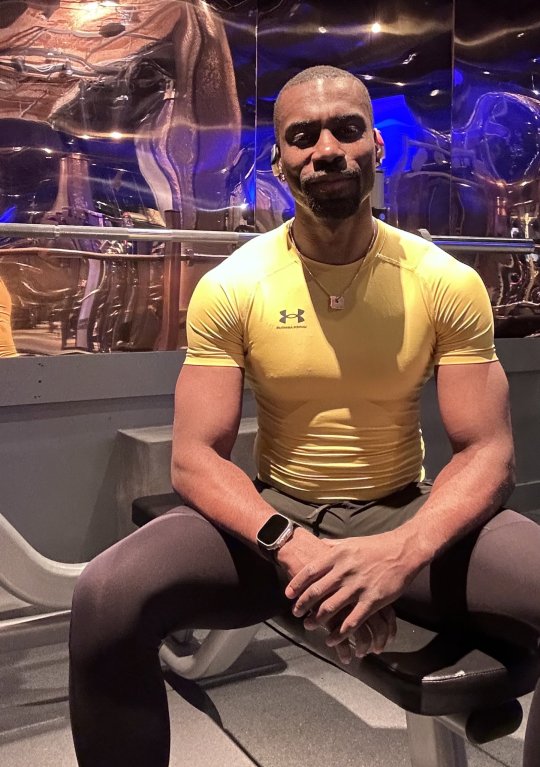





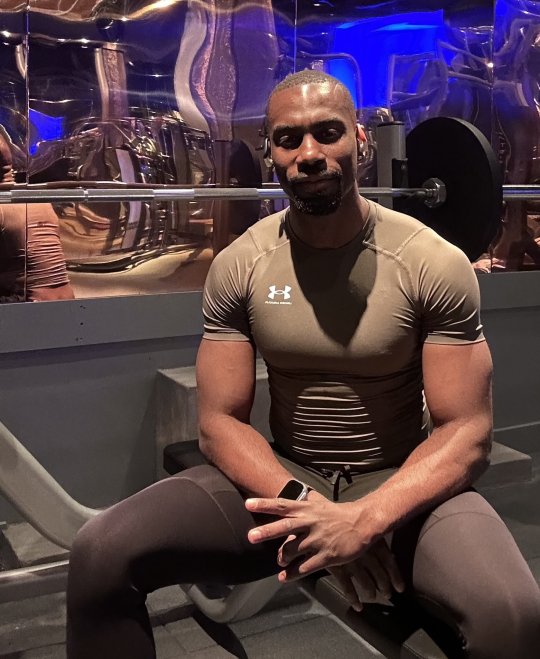
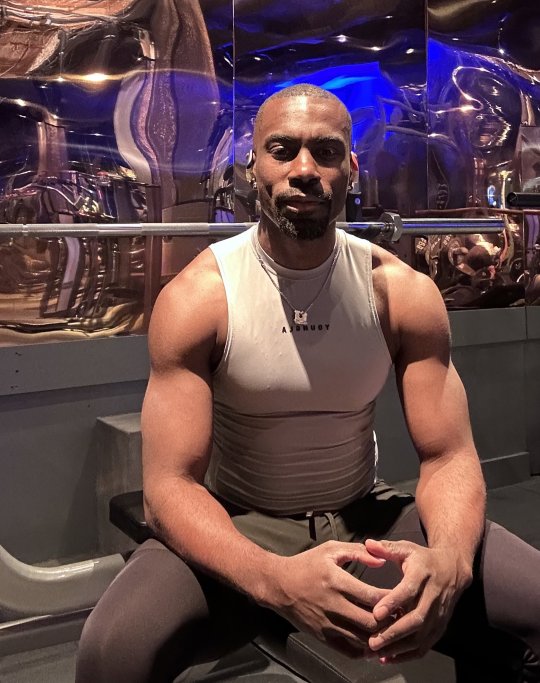
Deray McKesson
25 notes
·
View notes
Text
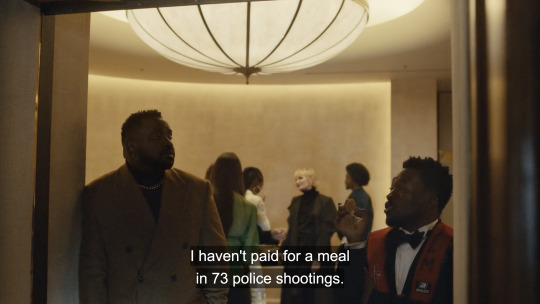
#atlanta#atlanta fx#donald glover#earn marks#bryan tyree henry#paper boi#season 3#fx#television#white fashion#s3e6#deray mckesson#blm#black lives matter#grifting#police#abolition
17 notes
·
View notes
Text
ZIWE SESSON 3
youtube
NOVEMBER 18TH !!!
#ziwe#bob the drag queen#michael che#julia fox#amber riley#blake griffin#deray McKesson#wayne brady#drew barrymore#THE SHOW OF THE YEAR IF NOT CENTURY#all hail queen ziwe#Youtube
3 notes
·
View notes
Text
0 notes
Text
youtube
Always remember Darren Seals.
#darren seals#blm#black lives matter#ferguson#deray mckesson#ferguson missouri#talib kweli#mike brown#activism#Youtube
0 notes
Text
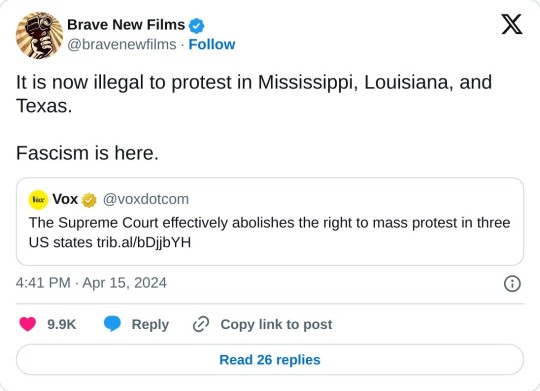


Under that lower court decision, a protest organizer faces potentially ruinous financial consequences if a single attendee at a mass protest commits an illegal act.
It is possible that this outcome will be temporary. The Court did not embrace the United States Court of Appeals for the Fifth Circuit’s decision attacking the First Amendment right to protest, but it did not reverse it either. That means that, at least for now, the Fifth Circuit’s decision is the law in much of the American South.
For the past several years, the Fifth Circuit has engaged in a crusade against DeRay Mckesson, a prominent figure within the Black Lives Matter movement who organized a protest near a Baton Rouge police station in 2016.
The facts of the Mckesson case are, unfortunately, quite tragic. Mckesson helped organize the Baton Rouge protest following the fatal police shooting of Alton Sterling. During that protest, an unknown individual threw a rock or similar object at a police officer, the plaintiff in the Mckesson case who is identified only as “Officer John Doe.” Sadly, the officer was struck in the face and, according to one court, suffered “injuries to his teeth, jaw, brain, and head.”
Everyone agrees that this rock was not thrown by Mckesson, however. And the Supreme Court held in NAACP v. Claiborne Hardware (1982) that protest leaders cannot be held liable for the violent actions of a protest participant, absent unusual circumstances that are not present in the Mckesson case — such as if Mckesson had “authorized, directed, or ratified” the decision to throw the rock.
Indeed, as Justice Sonia Sotomayor points out in a brief opinion accompanying the Court’s decision not to hear Mckesson, the Court recently reaffirmed the strong First Amendment protections enjoyed by people like Mckesson in Counterman v. Colorado (2023). That decision held that the First Amendment “precludes punishment” for inciting violent action “unless the speaker’s words were ‘intended’ (not just likely) to produce imminent disorder.”
The reason Claiborne protects protest organizers should be obvious. No one who organizes a mass event attended by thousands of people can possibly control the actions of all those attendees, regardless of whether the event is a political protest, a music concert, or the Super Bowl. So, if protest organizers can be sanctioned for the illegal action of any protest attendee, no one in their right mind would ever organize a political protest again.
Indeed, as Fifth Circuit Judge Don Willett, who dissented from his court’s Mckesson decision, warned in one of his dissents, his court’s decision would make protest organizers liable for “the unlawful acts of counter-protesters and agitators.” So, under the Fifth Circuit’s rule, a Ku Klux Klansman could sabotage the Black Lives Matter movement simply by showing up at its protests and throwing stones.
84 notes
·
View notes
Text
Ok ill be honest im certain labelling alot of the audience somerton tricked as 'baby gays" is irking me a little bit
The todd in the shadows showed a man (Deray McKesson) who was almost in his 40's cite him in the beginning of his damn video
Anyone can spread and fall for misinformation
47 notes
·
View notes
Text

The Supreme Court announced on Monday that it will not hear Mckesson v. Doe. The decision not to hear Mckesson leaves in place a lower court decision that effectively eliminated the right to organize a mass protest in the states of Louisiana, Mississippi, and Texas.
Under that lower court decision, a protest organizer faces potentially ruinous financial consequences if a single attendee at a mass protest commits an illegal act.
It is possible that this outcome will be temporary. The Court did not embrace the United States Court of Appeals for the Fifth Circuit’s decision attacking the First Amendment right to protest, but it did not reverse it either. That means that, at least for now, the Fifth Circuit’s decision is the law in much of the American South.
For the past several years, the Fifth Circuit has engaged in a crusade against DeRay Mckesson, a prominent figure within the Black Lives Matter movement who organized a protest near a Baton Rouge police station in 2016.
The facts of the Mckesson case are, unfortunately, quite tragic. Mckesson helped organize the Baton Rouge protest following the fatal police shooting of Alton Sterling. During that protest, an unknown individual threw a rock or similar object at a police officer, the plaintiff in the Mckesson case who is identified only as “Officer John Doe.” Sadly, the officer was struck in the face and, according to one court, suffered “injuries to his teeth, jaw, brain, and head.”
Everyone agrees that this rock was not thrown by Mckesson, however. And the Supreme Court held in NAACP v. Claiborne Hardware (1982) that protest leaders cannot be held liable for the violent actions of a protest participant, absent unusual circumstances that are not present in the Mckesson case — such as if Mckesson had “authorized, directed, or ratified” the decision to throw the rock.
2 notes
·
View notes
Text
WASHINGTON (AP) — The Supreme Court on Monday allowed a lawsuit to go forward against a Black Lives Matter activist who led a protest in Louisiana in which a police officer was injured. Civil rights groups and free speech advocates have warned that the suit threatens the right to protest.
The justices rejected an appeal from DeRay Mckesson in a case that stems from a 2016 protest over the police killing of a Black man in Baton Rouge.
At an earlier stage of the case, the high court noted that the issue was “fraught with implications for First Amendment rights.”
The justices did not explain their action Monday, but Justice Sonia Sotomayor wrote a brief opinion that said lower courts should not read too much into it.
The court’s “denial today expresses no view about the merits of Mckesson’s claim,’' Sotomayor wrote.
At the protest in Baton Rouge, the officer was hit by a “rock-like” object thrown by an unidentified protester, but he sued Mckesson in his role as the protest organizer.
A federal judge threw out the lawsuit in 2017, but a panel of the 5th U.S. Circuit Court of Appeals ruled 2-1 that the officer should be able to argue that Mckesson didn’t exercise reasonable care in leading protesters onto a highway, setting up a police confrontation in which the officer, identified in court papers only as John Doe, was injured.
In dissent, Judge Don Willett wrote, “He deserves justice. Unquestionably, Officer Doe can sue the rock-thrower. But I disagree that he can sue Mckesson as the protest leader.”
If allowed to stand, the decision to allow the suit to proceed would discourage people from protesting, the American Civil Liberties Union wrote, representing Mckesson.
“Given the prospect that some individual protest participant might engage in law-breaking, only the most intrepid citizens would exercise their rights if doing so risked personal liability for third-parties’ wrongdoing,” the ACLU told the court.
Lawyers for the officer had urged the court to turn away the appeal, noting that the protest illegally blocked the highway and that Mckesson did nothing to dissuade the violence that took place.
2 notes
·
View notes
Photo
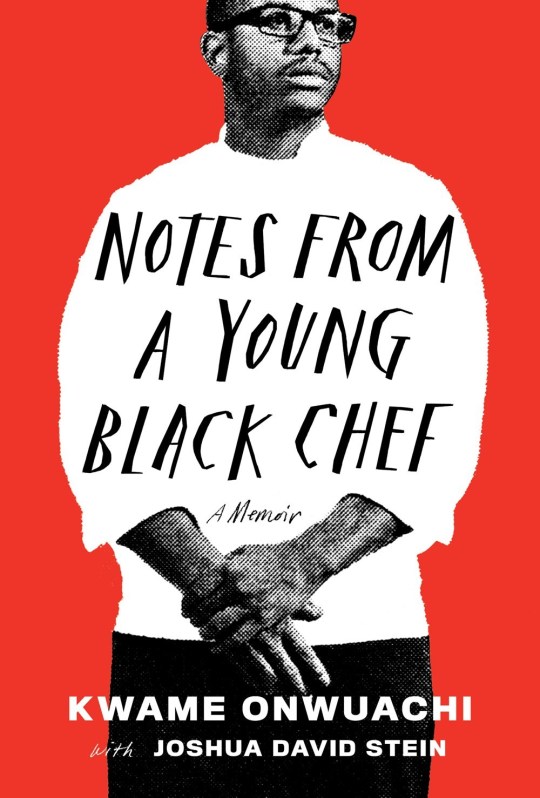
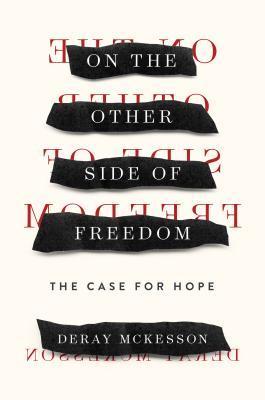


Black History Month: Biographies & Memoirs
Notes From a Young Black Chef by Kwame Onwuachi
By the time he was twenty-seven years old, Kwame Onwuachi (winner of the 2019 James Beard Foundation Award for Rising Star Chef of the Year) had opened - and closed - one of the most talked about restaurants in America. He had launched his own catering company with twenty thousand dollars that he made from selling candy on the subway, yet he’d been told he would never make it on television because his cooking wasn’t “Southern” enough. In this inspiring memoir about the intersection of race, fame, and food, he shares the remarkable story of his culinary coming-of-age.
Onwuachi’s love of food and cooking remained a constant throughout, even when he found the road to success riddled with potholes. As a young chef, he was forced to grapple with just how unwelcoming the world of fine dining can be for people of color, and his first restaurant, the culmination of years of planning, shuttered just months after opening. A powerful, heartfelt, and shockingly honest story of chasing your dreams - even when they don’t turn out as you expected - Notes from a Young Black Chef is one man’s pursuit of his passions, despite the odds.
On the Other Side of Freedom by DeRay Mckesson
In August of 2014, twenty-nine-year-old activist DeRay Mckesson stood with hundreds of others on the streets of Ferguson, Missouri, to push a message of justice and accountability. These protests, and others like them in cities across the country, resulted in the birth of the Black Lives Matter movement. Now, in his first book, Mckesson lays out the intellectual, pragmatic political framework for a new liberation movement. Continuing a conversation about activism, resistance, and justice that embraces our nation's complex history, he dissects how deliberate oppression persists, how racial injustice strips our lives of promise, and how technology has added a new dimension to mass action and social change. He argues that our best efforts to combat injustice have been stunted by the belief that racism's wounds are history, and suggests that intellectual purity has curtailed optimistic realism. The book offers a new framework and language for understanding the nature of oppression. With it, we can begin charting a course to dismantle the obvious and subtle structures that limit freedom.
The Beautiful Ones by Prince
Prince was a musical genius, one of the most beloved, accomplished, and acclaimed musicians of our time. He was a startlingly original visionary with an imagination deep enough to whip up whole worlds, from the sexy, gritty funk paradise of “Uptown” to the mythical landscape of Purple Rain to the psychedelia of “Paisley Park.” But his most ambitious creative act was turning Prince Rogers Nelson, born in Minnesota, into Prince, one of the greatest pop stars of any era.
The Beautiful Ones is the story of how Prince became Prince - a first-person account of a kid absorbing the world around him and then creating a persona, an artistic vision, and a life, before the hits and fame that would come to define him. The book is told in four parts. The first is the memoir Prince was writing before his tragic death, pages that bring us into his childhood world through his own lyrical prose. The second part takes us through Prince’s early years as a musician, before his first album was released, via an evocative scrapbook of writing and photos. The third section shows us Prince’s evolution through candid images that go up to the cusp of his greatest achievement, which we see in the book’s fourth section: his original handwritten treatment for Purple Rain - the final stage in Prince’s self-creation, where he retells the autobiography of the first three parts as a heroic journey.
My Time Will Come by Ian Manuel
The United States is the only country in the world that sentences thirteen- and fourteen-year-old offenders, mostly youth of color, to life in prison without parole. In 1991, Ian Manuel, then fourteen, was sentenced to life without parole for a non-homicide crime. In a botched mugging attempt with some older boys, he shot a young white mother of two in the face. But as Bryan Stevenson, attorney and executive director of the Equal Justice Initiative, has insisted, none of us should be judged by only the worst thing we have ever done.
Capturing the fullness of his humanity, here is Manuel's powerful testimony of growing up homeless in a neighborhood riddled with poverty, gang violence, and drug abuse - and of his efforts to rise above his circumstances, only to find himself, partly through his own actions, imprisoned for two-thirds of his life, eighteen years of which were spent in solitary confinement. Here is the story of how he endured the savagery of the United States prison system, and how his victim, an extraordinary woman, forgave him and bravely advocated for his freedom, which was achieved by an Equal Justice Initiative push to address the barbarism of our judicial system and bring about "just mercy." Full of unexpected twists and turns as it describes a struggle for redemption, My Time Will Come is a paean to the capacity of the human will to transcend adversity through determination and art - in Ian Manuel's case, through his dedication to writing poetry.
#black history month#black history#black stories#biography#autobiography#memoir#nonfiction#nonfiction reads#nonfiction books#library books#book recommendations#reading recommendations#book recs#reading recs#TBR pile#tbr#to read#booklr#book tumblr#book blog#library blog
12 notes
·
View notes
Text
FBI Hired #SocialMedia Surveillance Firm That Labeled #BlackLivesMatter Organizers “Threat Actors”
"A new Senate report calls out the FBI for lying to Congress about its social media monitoring, pointing out the FBI’s hiring of ZeroFox.
(...)
The FBI’s primary tool for monitoring social media threats is the same contractor that labeled peaceful Black Lives Matter protest leaders DeRay McKesson and Johnetta Elzie as “threat actors” requiring “continuous monitoring” in 2015.
The contractor, ZeroFox, identified McKesson and Elzie as posing a “high severity” physical threat, despite including no evidence that McKesson or Elzie were suspected of criminal activity."
#fbi corruption#fbi most wanted#fbi season 5#fbi los angeles#the federal bureau of investigation#fbi international#moment us air national guardsman jack teixeira arrested by fbi amid probe into leak of top secret pentagon docs#fbi#fuck the feds#the rookie feds#feds#socialmedia#social media#surveillance#blacklivesmatter#Rassismus#usa#blm#america#antireport#ausgov#politas#auspol#tasgov#taspol#australia#neoliberal capitalism#anthony albanese#fuck neoliberals#albanese government
4 notes
·
View notes
Text
Black History Month book recommendations:
1) Open Water by Caleb Azumah Nelson
- going viral for good reason, this is a beautiful examination of what it means to fall in love as a Black man in London. Written in the second person with a unique, lyrical style, this often sad and raw story explores the themes of masculinity, race, love and loss. This is as much about the protagonist struggling to find his own self and place in the world as it is about falling in love with someone else. Deeply touching and original.
cw: racism, police violence, existential themes
2) The Thing Around Your Neck by Chimamanda Ngozi Adichie
- a collection of twelve short stories that tie together the corruption, poverty and violence of small towns in Nigeria with it's colour, community and joys, and the cruelty and ignorance of the west with moments of hope and relative freedom. The first story, 'Cell One', is a moving account of a brother wrongly jailed in Nigeria, his family's fear for him, and the way he is changed by his time, for better and worse. The eponymous 'The Thing Around Your Neck' explores what it means to be a Black woman who moves to America and the difficulties and nuances of a relationship with a White man who often feels worlds away.
cw: racism, colourism, police violence, corruption, sexual assault, violence/gang violence
3) Girl, Woman, Other by Bernardine Evaristo
- another of the more well known pieces of fiction by a Black female author. This novel weaves together the lives of twelve different women, giving a voice to Black women in Britain who are often overlooked in literature. Their stories explore themes of identity, race, feminism, class and sexuality. Despite everything that ties the characters together, they still often exclude and 'other' themselves and eachother based on everything from different social standings to skin colour to sexuality. Written in a beautiful mixture of poetry and prose.
cw: sexual violence, racism, misogyny, abuse, deadnaming, misgendering, drugs
4) The Colour Purple by Alice Walker
- A love story between two Black women in spite of the violence that surrounds them. At times it is dark and upsetting, this novel speaks of things that still happen around the world today that too many of us in privileged positions are ignorant of. The story is set pre second world war, but the women's rights issues, misogyny and racism within these pages are still prevalent in our society today. Told through an engaging, epistolary style with very vivid characters, both loveable and cruel. There is so much growth in this book and you can see it in each character. Nobody ends up the same as how they began. As bleak as the story starts, it ends vivid and full of life and hope.
cw: sexual violence, abuse, misogyny, racism, colourism, sickness/death
5) Sister, Outsider: Essays and Speeches by Audre Lorde
- finishing off with a partially non-fiction recommendation. This is a collection of essays, memoirs and poems by Audre Lorde, a Black woman, lesbian, mother and feminist. Many of these essays are now cited as pivotal works in contemporary feminist theory. With excerpts from all over the world, this collection examines oppression, misogyny, war, homophobia, but also equality and self-love.
cw: police brutality, war, misogyny, homophobia, racism, violence, ageism
Notable mentions for books I haven't read but that have been recommended to me so I thought were worth sharing:
6) Things Fall Apart by Chinua Achebe
7) On The Other Side of Freedom by DeRay McKesson
8) Shallow Waters by Anita Kopacz
9) State of Emergency by Tamika D Mallory
If you would like me to find out more about content/trigger warnings for the above please let me know and I will do my best.
Reminder to continue to engage with Black creatives and amplify Black voices all year round, I'm sharing these now but it's more than a month.
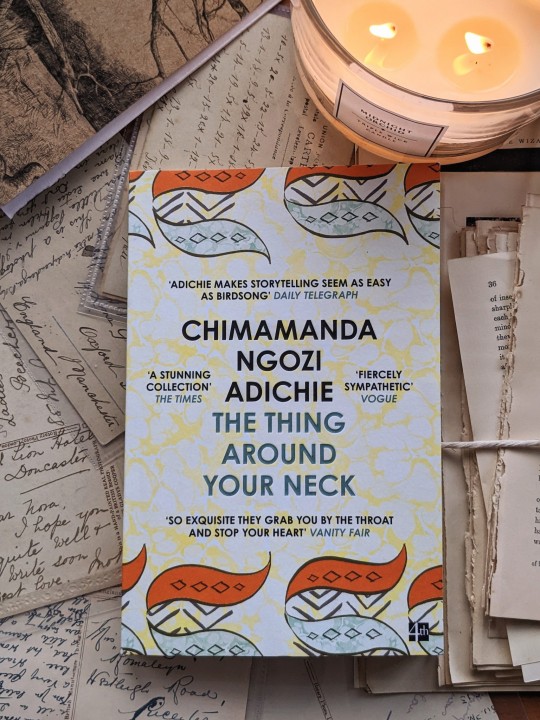
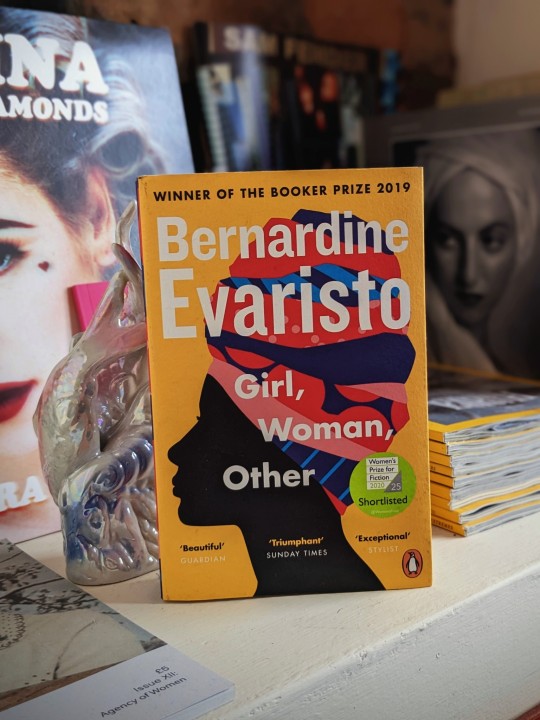

#black history month#booklr#book recs#book recommendations#book rec list#more than a month#open water#sister outsider#girl woman other#the color purple#the thing around your neck#black history#tw racism
7 notes
·
View notes
Text
The US Supreme Court declines to hear Black Lives Matter activist DeRay Mckesson's appeal, allowing him to be sued by a Louisiana officer injured in a 2016 protest.
This decision could impact the future of public demonstrations in the U.S.
#SupremeCourt #BLM #DeRayMckesson #PublicProtests #LegalNews
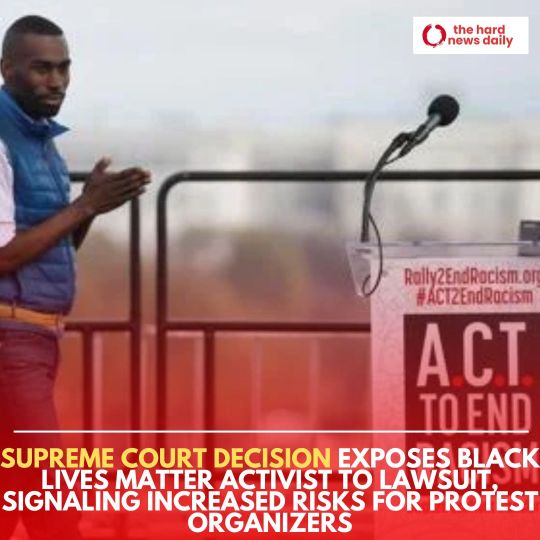
0 notes
Text
The Supreme Court announced on Monday that it will not hear Mckesson v. Doe. The decision not to hear Mckesson leaves in place a lower court decision that effectively eliminated the right to organize a mass protest in the states of Louisiana, Mississippi, and Texas.
Under that lower court decision, a protest organizer faces potentially ruinous financial consequences if a single attendee at a mass protest commits an illegal act.
It is possible that this outcome will be temporary. The Court did not embrace the United States Court of Appeals for the Fifth Circuit’s decision attacking the First Amendment right to protest, but it did not reverse it either. That means that, at least for now, the Fifth Circuit’s decision is the law in much of the American South.
For the past several years, the Fifth Circuit has engaged in a crusade against DeRay Mckesson, a prominent figure within the Black Lives Matter movement who organized a protest near a Baton Rouge police station in 2016.
The facts of the Mckesson case are, unfortunately, quite tragic. Mckesson helped organize the Baton Rouge protest following the fatal police shooting of Alton Sterling. During that protest, an unknown individual threw a rock or similar object at a police officer, the plaintiff in the Mckesson case who is identified only as “Officer John Doe.” Sadly, the officer was struck in the face and, according to one court, suffered “injuries to his teeth, jaw, brain, and head.”
Everyone agrees that this rock was not thrown by Mckesson, however. And the Supreme Court held in NAACP v. Claiborne Hardware (1982) that protest leaders cannot be held liable for the violent actions of a protest participant, absent unusual circumstances that are not present in the Mckesson case — such as if Mckesson had “authorized, directed, or ratified” the decision to throw the rock.
Indeed, as Justice Sonia Sotomayor points out in a brief opinion accompanying the Court’s decision not to hear Mckesson, the Court recently reaffirmed the strong First Amendment protections enjoyed by people like Mckesson in Counterman v. Colorado (2023). That decision held that the First Amendment “precludes punishment” for inciting violent action “unless the speaker’s words were ‘intended’ (not just likely) to produce imminent disorder.”
The reason Claiborne protects protest organizers should be obvious. No one who organizes a mass event attended by thousands of people can possibly control the actions of all those attendees, regardless of whether the event is a political protest, a music concert, or the Super Bowl. So, if protest organizers can be sanctioned for the illegal action of any protest attendee, no one in their right mind would ever organize a political protest again.
Indeed, as Fifth Circuit Judge Don Willett, who dissented from his court’s Mckesson decision, warned in one of his dissents, his court’s decision would make protest organizers liable for “the unlawful acts of counter-protesters and agitators.” So, under the Fifth Circuit’s rule, a Ku Klux Klansman could sabotage the Black Lives Matter movement simply by showing up at its protests and throwing stones.
0 notes
Text
A Look Into Protesters Rights and The First Amendment
By Elliona Bannerman, North Carolina Central University, Class of 2022
December 29, 2023

The First Amendment of the constitution states Congress makes no law according to religion or prohibiting the free exercise [1]. This amendment protects the freedom of speech, press, assembly, and the right to petition the Government without fear of punishment [1]. Simply put, this amendment affords a citizen the right to exercise their freedom to voice their thoughts without Congress being able to make a law against it. This can be difficult as it relates to protesters which can end in rioting and as a result people end up killed, beatings, pepper spray, and so forth. This often leads into those protesting being charged and sentenced to jail time, which is the purpose of this article to take a closer look into cases of protester rights and see how the first amendment contributes to the case.
In 2016, the case, Doe v. McKesson, involved a protest led by DeRay Mckesson that was based around the Black Lives Matter platform [2]. During the protest, an attendee struck a police officer named John Doe who is a part of the Baton Rouge Police Department, with an object that caused severe injuries to the officer [2]. The officer sued McKesson, stating that he organized and led the protest, so he “should have known” that violence is likely to follow [2]. This is because the protest was conducted in front of the police department, blocking entry and access to the street, with McKesson directing the protest throughout [2]. A history is shown of McKesson protests across the country that often leads to violence that includes property damage [2]. The case was dismissed in 2017 by the District Court of Louisiana that held the First Amendment and the constitutional rule that protesters and leaders can’t be liable for the actions (violent or not) of a third party unless that intentional or personally “authorized” the violence [3].
The case then went through a series of appeals with the Fifth Circuit reversing the decision and which led towards the U.S. The Supreme Court heard the case, and they ruled to vacate the Fifth Circuit decision and direct it back to the Louisiana Supreme Court to address the case in relation to the state law [3]. The case is currently in review stage by the Supreme Court, which was filed by McKesson on October 5, 2023 [3]. This case is an example of the challenge of the First Amendment and Protesting, with how it is a complex case to decide whether an individual involved in a protest can be held accountable for their actions if it results in violence or rioting. In May 2020, there were various protests happening across the world due to the killing of George Floyd by the police, and some resulted in violence between law enforcement and citizens. Since then the uproar of protests has been increasing around the country with some being held accountable for their actions in the court of law. In the state of North Carolina, Governor Cooper introduced two bills into law that discusses anti-rioting which is titled Prevent Rioting and Civil Disorder bill [4]. This increases the punishments of rioting or inciting a riot by individuals that leads to damage to property,injury, or death [4].
Those who advocate for the new law acknowledge the constitutional right of the First Amendment, but they feel those who cause peaceful protests to turn into chaos, must be held accountable in the court of law [4]. While opponents of the law fear the bill can silence voices because of the possibility of losing your right to vote if they are charged by this bill which is considered a felony [4].
The American Civil Liberties Union has established on their website information for protesters to know to protect themselves according to the First Amendment and what steps to take for preparation [5]. However, the police and government are allowed to place certain restrictions on the speech rights according to their laws to ensure the safety of communities within that specific city and state.
______________________________________________________________
[1] White House Gov. (2023). The constitution. Retrieved from
https://www.whitehouse.gov/about-the-white-house/our-government/the-constitution/#:~:text=The%20First%20Amendment%20provides%20that,the%20right%20to%20bear%20
arms.
[2] US Courts. (2023). United States Court of Appeals for the Fifth circuit. Retrieved
from https://www.ca5.uscourts.gov/opinions/pub/17/17-30864-CV4.pdf
[3] ACLU. (2023). Retrieved from https://www.aclu.org/cases/doe-v-mckesson
[4] ABC 11. (2023). Anti-rioting bill becomes law without Gov. Cooper’s signature. Retrieved from
https://abc11.com/rioting-stiffer-penalties-for-rioters-gov-roy-cooper-anti-rioting-bill/129
75325/
[5] ACLU. (2023). Know your rights: Protesters’ rights. Retrieved from
https://www.aclu.org/know-your-rights/protesters-rights
0 notes